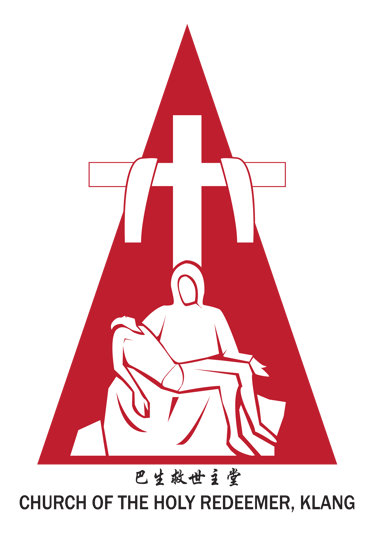
Liturgical Ministry
Overview
All Liturgical celebrations, especially the celebration of the Eucharistic Liturgy, are celebrations of the whole Church. They are not private functions. The Church is the “sacrament of unity: the holy people united and arranged under their bishops. Therefore, liturgical services pertain to the whole Body of the Church”. (CSL 26)
In the midst of this Body, there are individual ministries who serve all the faithful by executing different functions. These functions are integral and necessary parts for the liturgy to be performed in a dignified and reverend manner, and for respecting the nature, shape, and dynamic of liturgy. These ministries may include:
Priest (Main Celebrant)
Altar Servers
Extraordinary Ministers of Holy Communion
Lectors
Hospitality/Warden
Music Ministers (choir/cantor)
The Priest & Deacon are ordained ministers; the Priest is the single indispensable minister for the celebration of the Holy Eucharist. The Deacon, when present, has specific functions pertaining to his role in the celebration, and these must be observed.
Lay Liturgical Ministers exercise a “genuine liturgical function. They ought, therefore, to perform their roles with the sincere piety and decorum demanded by so exalted ministries and rightly expected of them by God’s people” (CSL 29).
All liturgical ministers exist for the service of the Body of Christ, the People of God, the assembly gathered in God’s name. Although serving in any of these ministries should be a source of joy and satisfaction for individual people, these ministries exist for the benefit and service of the Church and not for individual or personal piety, spiritual growth, or status. As such, these ministries are regulated by Church and Liturgical law and are submitted to the authority of the Bishop and the local Pastor (USCCB).
These liturgical ministries strive to be modeled after the example of service of Jesus Christ in the Washing of the Disciple’s feet at the Last Supper. (John 13: 1-15). Serving at the Liturgy is an act of self-giving, not self-seeking; an act of love that must be continued in the ordinary of our lives for the glory of God. Therefore, “The faithful should not refuse to serve the People of God in gladness whenever they are asked to perform some particular service or function in the liturgical celebration.” (GIRM 97)
Ministries and Roles within the Liturgical Assembly at Mass
When the Church comes together in the liturgical assembly to celebrate the Mass, or any other sacrament, her members do not gather simply as a crowd, as an amorphous, undifferentiated group of people. They gather in a variety of ministries and roles. If we are to understand the significance of these ministries and roles, we must begin with Baptism, for only one who through Baptism has been given a share in the priesthood of Christ is capable of participating in the public worship which is the liturgy of the Church. In fact, the Constitution on the Sacred Liturgy of the Second Vatican Council tells us that participation in the liturgy is the right and duty of all the baptized.
The first qualification, then, for any participant in the celebration of the Eucharist is that he or she has been baptized into the Body of Christ, the Church. Each time the members of the Church gather to worship, they do so because their baptism demands this of them. While all share in the priesthood of Christ which delegates them to worship, some members of the Church are called by God to serve in the ministerial priesthood as bishops and priests. Bishops and priests are privileged to act in the liturgy in the very person of Christ, on behalf of his people, pronouncing the most sacred prayers of our faith, presiding over the celebration of the sacred mysteries, explaining God's Word and feeding God's people on the body and blood of Christ. A bishop has the added responsibility of being the chief shepherd, the principal liturgist of his diocese and in that role is the successor of the Apostles. Others by God's grace are ordained to the ministry of deacon. In the celebration of the Mass deacons proclaim the Gospel and assist the bishop and priest in exercising their sacred duties.
In addition to the ordained ministries there are roles in the liturgy which are exercised by lay people who place their time and talent at the service of the liturgical assembly as acolytes (altar servers), lectors, extraordinary ministers of Holy Communion, cantors, choir members, instrumentalists, leaders of song and ushers. Others contribute their time and talent to planning and organizing the liturgy, to keeping the church and the vestments, vessels and appointments clean and well-ordered or to providing decorations that reflect the spirit of the liturgical feast or season.
The General Instruction makes it very clear that this variety of offices and roles is desirable and should be maintained. In fact it goes so far as to state: ...all, therefore, whether they are ordained ministers or Christian faithful, in fulfilling their offices or their duty, should carry out solely but completely that which pertains to them." Not only, therefore, is it desirable that individuals function in roles of service at Mass, it is clear from the Instruction that if a deacon, for example, is present, the priest celebrant or a concelebrant should not read the Gospel. And the lector should not also take on the role of server and/or extraordinary ministers of Holy Communion. There is a wide variety of services to be performed, and it is desirable that different individuals exercise those services so that the talents and gifts God has placed within the Christian community are fully utilized and these roles of service are not monopolized by a few.
It is not sufficient, however, simply to have a "warm body" filling a given role. Those engaged in liturgical roles need to be well-prepared for those roles and to know how to carry them out with reverence, dignity and understanding. Obtaining the proper preparation requires a further gift of time on the part of the person being prepared as well as on the part of those in the parish responsible for the training of liturgical ministers. Finally, the practical task of assigning individuals to particular Masses and organizing the distribution of roles is another indispensable element in the fabric of well-ordered liturgical ministry in a parish.
But before individuals can be prepared for liturgical roles, there must first be individuals who are willing to assume those roles. All the baptized need to understand that part of their duty regarding liturgy is to accept some responsibility for the liturgy, to place themselves and their God-given talents at the service of the liturgical community whenever possible. If liturgy is a duty as well as a right, then part of that duty for those able to undertake these tasks is the responsibility to assume such key roles as those of lector, server or acolyte, extraordinary ministers of Holy Communion, usher, choir member, etc. . Whether one brings up the gifts at the Presentation, reads the Word of God, assists with the distribution of Communion and brings the Eucharist to those unable to be present at Mass, serves at the altar, provides music that augments the joy, solemnity and festivity of the celebration or serves the assembled community as an usher, he or she is contributing to the worship of the community and fulfilling the responsibility that comes with Baptism.
Not all members of the parish community will have the time, energy, strength or ability to serve in these roles, however, individuals must be careful not to excuse themselves too easily. And it might also be helpful for us to reexamine our situation every so often. The time available to a business person or to parents with young children may be very limited. But eventually business people retire and children grow up, leaving those individuals with more free time at their disposal. What is important is that all understand that the celebration of liturgy is not just the responsibility of the pastor, although he is delegated by the Bishop to oversee the liturgical life of the parish. Pastors need the help of their people, the people who are serious about living out their baptismal right and responsibility to worship.
Finally, this catalogue of specialized roles might give the impression that those who are not exercising one of these roles are free to sit back passively and simply let the liturgy happen around them. Nothing could be further from the truth. Those who come together for liturgy do not have the luxury of acting as passive "pew potatoes," waiting for all to be done for them. The liturgy is not only their right, it is their duty, their responsibility, and that responsibility includes full engagement throughout the liturgical celebration. The baptized faithful who form the congregation are called to join in praise and thanksgiving in song and spoken word; to listen attentively to God"s Word, to exercise their baptismal priesthood in prayer for the Church, the world and all in need during the General Intercessions. In the Liturgy of the Eucharist they join their prayer to that of the priest celebrant, offering Christ the Victim, not only through the hands of the priest, but also together with him and offer themselves as well (GIRM, no. 95) and their participation culminates in the reception of the Body and Blood of the Lord, the sacrament which unites them more fully with Christ their Head and with one another.
In their sincere efforts to participate, those present minister to the priest celebrant, to others who serve in liturgical roles, and to one another. Their attention and active engagement in the celebration can draw from the priest celebrant and the other ministers the best they have to offer. Their enthusiastic song and verbal responses made with conviction can encourage others to sing and respond; their very presence at the celebration of Mass when so many other enticing options might have been chosen instead supports and reinforces others who have made the same choice.
The liturgy, then, is about the action of God's own people, each with different offices and roles, each office and role, from that of bishop and priest to that of usher and sacristan, one of service, not of privilege, a mirror of Christ who washed the feet of his disciples and instructed his followers to imitate his example of service.
HRC Klang Liturgical Ministry Members
NAME
Rev. Fr. Andrew Kooi
Teresa Lopez
Anthony Marshall
Dominic Bay
Teresa Lopez
Anthony Marshall
Jason Anthony
Grayson O'Neil
Catherine Lim
Scholastica Choo
Dominic Bay
Eric Chua
Nicholas Fernandez
Cornelius Chantru
Regina Bon
Matthius Milli
Celine John
Adelaide Lee
Teresa Lopez (Person-in-Charge), Dominic Bay (Assistant)
Teresa Lopez (Person-in-Charge), Dominic Bay (Assistant)
Wedding Mass / Service
Funeral Mass / Service
ROLE
Advisor (Parish Priest)
Coordinator
Assistant Coordinator
Secretary
Extraordinary Ministers of Holy Communion Coordinator
Assistant EMOHC Coordinator
Altar Servers Coordinator
Altar Servers Advisor
Lectors Coordinator
Choir & Musicians Coordinator
LCD Coordinator
Assistant Secretary/ LCD Coordinator
Hospitality Coordinator
Hospitality Assistant Coordinator
Chinese Apostolate Liturgy Representative
KUBM Liturgy Representative
Altar Flowers
Sacristan


